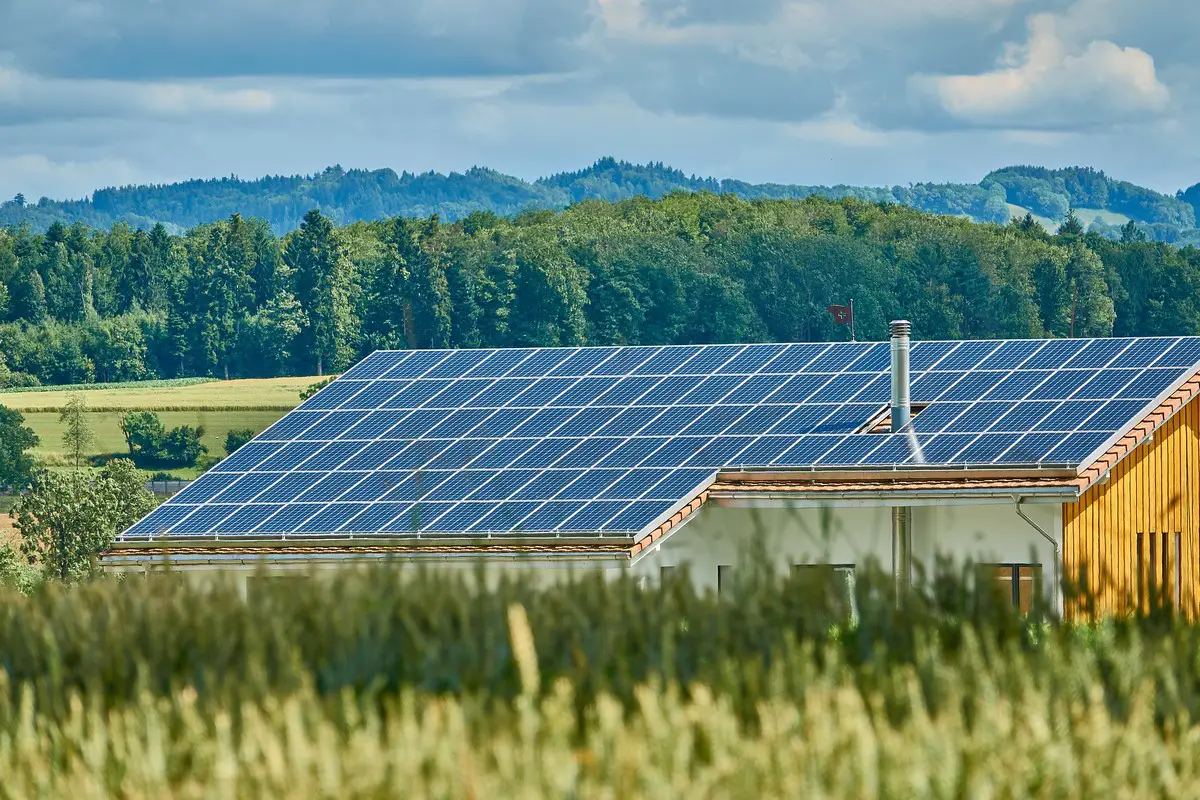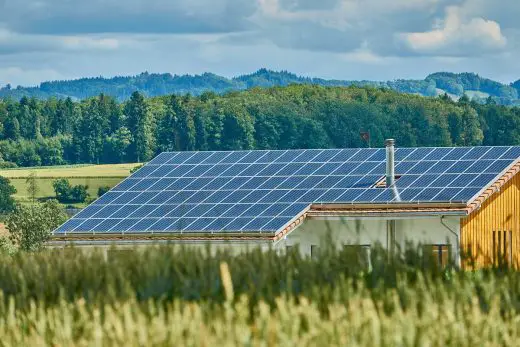Different types of roofing for solar panel installation guide, Online building roof advice, Property energy tips
Types of Roofing for Solar Panel Installation Advice
29 Oct 2021
Different Types of Roofing: Are All of Them Suitable for Solar Panel Installation?
If you have made the decision to fit solar panels to your roof there are a couple of key considerations to take into account.
You will want to find the best solar company – like www.sempersolaris.com – so that you get the right solution for your needs, and you will also want to be sure that your roof is suitable for solar panel installation.
There are different types of roofing available and the obvious question is does your roof fit the bill when it comes to being ready for solar panels?
Here is a look at the different types of roofing so that you can identify what you have covering your home and an overview of their suitability for a solar panel installation.
Different materials
It is relevant to note that the cost of your solar panel installation will be impacted by the type of roofing material you have.
The good news is that the vast majority of roof types are suitable to receive solar panels but the structure and strength of your roof are of particular importance when it comes to costs and suitability.
You need to know that your roof is capable of withstanding the additional weight burden that comes with installing solar panels. The best way of answering that question would be to ask your installer to carry out a structural report. This is something that will be talked about and offered to you in most cases when you are getting a quote from your chosen installer.
What are the best roofing materials for solar panels?
It is fair to say that although most roofs can cope with solar panels some materials are considered more suitable than others.
Asphalt shingles, also referred to as composite roofing, are generally considered one of the most suitable of all the typical roofing materials available. The reason for this is down to how durable it is and its reliability to stand the test of time. That is important when you are investing in solar panels to go on your roof as you want to know the surface will stay in place and last so that it doesn’t cause any problems with your panels.
If you have a metal roof that is also a very suitable material for solar panel installation purposes. It can often be the case that fitting your panels is relatively easy when you have a metal roof. That could mean your installation costs are lower when you have this option.
A plain tile roof, made from concrete, for instance, is easy to work with from an installation perspective. However, these types of tiles tend to be brittle and some older tiles might not be felted underneath. An installer will usually fit an “on-roof” system for this type of tile to reduce the prospect of movement and breakages.
Slate roofs are probably one of the most difficult materials to work with when it comes to installing solar panels. The reason for this is mainly due to how challenging it can be to drill through slates to secure the panels. A viable method for dealing with this would be to remove an area of slates and replace it with an integrated in-roof solar panel system, rather than trying to secure the system to the existing slates.
Your chosen installer will identify any of these issues and suggest a suitable option. Some of these options are more labor-intensive than others and that is why the type of roofing material you have can dictate the installation cost.
Got a flat roof?
You might think that if you have a flat roof you probably can’t get solar panels fitted. There are actually lots of properties with a flat roof or an area that is flat, all of which get plenty of sunshine.
That means there is an opportunity to harness the sun’s energy with panels and the good news is that there are several ways to successfully install panels on a flat roof.
Typically, an aluminum mounting system is fixed to the flat roof so that you can then get the angle required to capture the energy from the sun. The installer will be able to calculate the load-bearing capacity of your flat roof and recommend a solution that meets these parameters.
A flat roof constructed using tar or gravel can accommodate panels that can then be tilted to an angle of somewhere between 3 and 40 degrees.
The bottom line is that whatever roofing material you have covering your home and whether it is a pitched or a flat roof design, you should be able to find a solar panel solution that works for your situation.
What about if my roof is shaded?
Not everyone is fortunate enough to live in a home that receives plenty of uninterrupted sunshine on a daily basis. You might live in a property where your roof is shaded, for example.
If your property is shaded it does not mean you can’t have solar panels but you do have to consider your options more carefully when the amount of power the panels can generate is adversely impacted by shading.
If your property tends to have a lot of shadows cast upon it for extended periods throughout the day it would be sensible to get a shading analysis performed. Your installer can perform this task and talk about your options based on the results.
Even if your roof is too shaded to be considered suitable, you always have the option of a ground-mounted system, for example, so that you can still generate solar energy.
The size of your roof
Lastly, it is worth mentioning that the size of your roof area can be a factor with regard to suitability for a solar panel installation.
To give you a rough idea, a typical installation needs about 28 square meters of available roof space. Even if you don’t have this much available, you can look at flexible solar panels as a way of fixing that particular problem.
The bottom line is that whatever type of roofing material you have and however your property is situated in relation to the sun, it is feasible that there is a solution available that will let you fit solar panels to your home.
Comments on this guide to types of roofing for solar panel installations article are welcome.
Roofing Articles
Roofing Articles
The Benefits of Liquid Roofing
Does soundproofing a wall really work
The Top Roofing Company For Your Business
Building Solar Panels
Solar Panels Posts
Best solar panel installation services for you
Are Microinverters Right For Your Solar System
Architects getting more involved in solar power design
Building Articles
Residential Architecture
Comments / photos for the Types of roofing for solar panel installation advice page welcome




